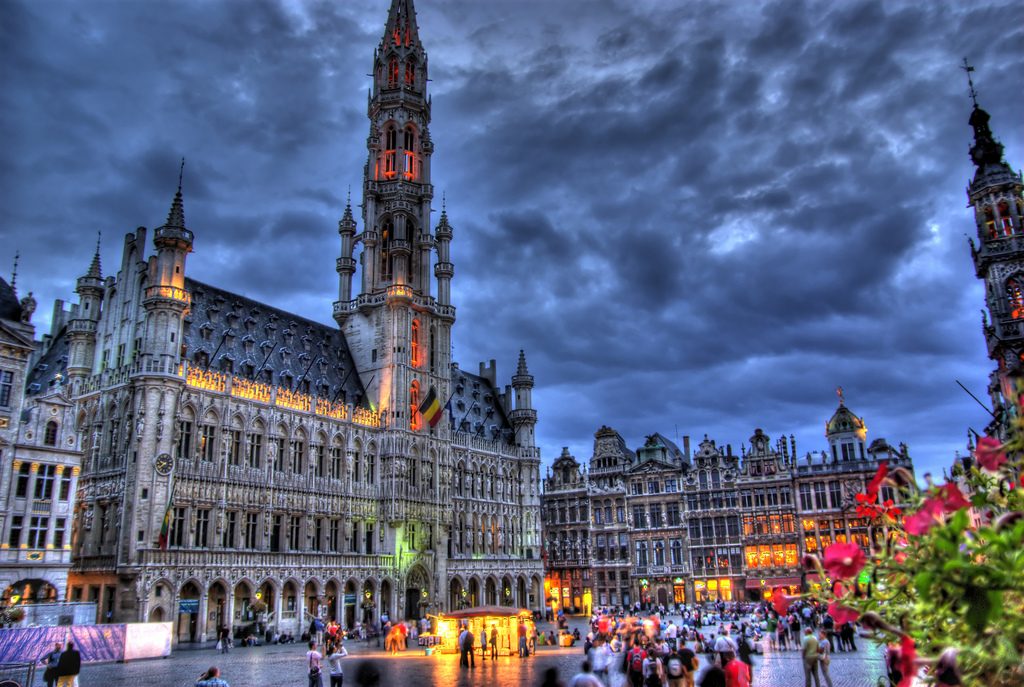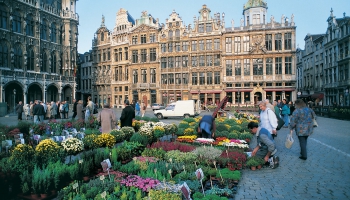
The grave crisis we are experiencing today as a result of the coronavirus pandemic and the indispensable measures taken by the National Security Council have important consequences on the lives of citizens, as well as on companies and their workforce.
Today the Brussels-Capital Region government decided to take unprecedented economic and social measures to support the sectors most affected, with a budget of more than 150 million euros:
- A single payment of €4,000 per company whose closure is mandatory following the decisions taken by the National Security Council and which operates in the following sectors:
- catering (NACE code 56);
- accommodation (NACE code 55);
- travel agencies, tour operators, reservation services and related activities (NACE code 79);
- the retail trade, with the exception of food shops (including night shops), pet food shops, pharmacies, newsagents, petrol stations and fuel suppliers;
- recreational and sporting activities (NACE codes 92 & 93).
- A single payment of €2,000 for hairdressing salons (NACE code 96.021).
- The suspension of payment of city tax by the Brussels region for the first semester 2020.
- Strong support for the cash flow of affected companies through the granting of public guarantees (via the Brussels Guarantee Fund) on bank loans totalling 20 million euros.
- The creation of a delegated mission at Finance&Invest.brussels which includes in particular:
- the possibility of a reduced-rate loan to key suppliers in the HORECA sector allowing them to offer payment terms to establishments in the sector;
- the possibility of a reduced-rate loan for HORECA establishments employing more than 50 people.
- A moratorium on the capital repayment of loans granted by Finance&invest.brussels to impacted companies in the affected sectors.
- Accelerated or even anticipatory processing, commitment and execution of aid for economic expansion in the HORECA, tourism, events and culture sectors.
- Stronger support for businesses in difficulty by hub.brussels in collaboration with the Centre for Businesses in Difficulty (CED/COM) with increased funding of €200,000.
For the taxi sector
- Suspension of the operating tax for taxis and chauffeur-driven cars for the year 2020.
In the social economy and for service vouchers
- Normally excluded from economic aid, social economy enterprises will now be able to benefit from all the measures put in place to support the economic fabric of Brussels in the face of the Covid-19 crisis.
- Within a harmonised federal approach, the payment of the regional contribution (€14.60 per hour whether or not the service is provided) to service voucher companies is maintained. This will make it possible to pay the salaries of home helpers, on condition that the companies are not applying economic unemployment, and to support the sector. An amount of 20 million euros has been allocated for this measure. However, it will only be feasible if the federal government agrees to abolish social security contributions for this sector.
In foreign trade
- brussels is responsible for regular monitoring of the impact of Covid-19 on the Brussels economy and in particular on high-risk sectors. There is close cooperation with private enterprises. Following the cancellation of activities abroad (major trade fairs, missions in high-risk areas), hub.brussels is contacting companies individually to clearly explain the technical details (information about the cancellation, explanation of how reimbursement of their expenses can be organised, etc.). Depending on how the situation develops, hub.brussels will present alternative proposals for activities which have been cancelled.
In the image of Brussels, sport, equal opportunities and social cohesion
In order to support the not-for-profit sectors and the event, tourism, cultural and sports sectors in Brussels:
- In the promotion of the image of Brussels, for events taking place in whole or in part from 1 March to 30 April 2020 inclusive:
- for events postponed until later in the year 2020, the grant awarded remains unchanged from the grant decree and unchanged in the amount awarded;
- for cancelled events, the Brussels government authorises the use of this grant to settle invoices for expenses already incurred that are non-cancellable.
– In sport, equal opportunities and social cohesion:
- In the event of outright cancellation and if non-refundable costs have been incurred, the grant does not have to be reimbursed;
- In the event of postponement to a later date, it will not be necessary to start a new grant application procedure and the analysis of supporting documents will be relaxed.
Suspension of LEZ fines
Finally, the Brussels government has decided to change the date on which fines will come into force under Low Emission Zone regulations (initially scheduled for 1 April 2020) and to temporarily suspend issuing fines for vehicles concerned since 2018. The entry into force of fines is postponed to the first day of the month following the end of the measures taken by the federal government relating to the Covid-19 pandemic.
It should be remembered that since 1 January 2018 Brussels operates a low emission zone (LEZ) which restricts the circulation of the most polluting vehicles, in order to improve air quality and the health of those in the Brussels-Capital Region.
In the context of the current crisis, all citizens affected by coronavirus should be freely permitted to go to a hospital, or make any other type of journey made imperative by this pandemic.
These measures complement the measures put in place by the European Union and federal authorities to combat the economic crisis that is hitting our country hard.
For any questions concerning these economic measures and the aid to Brussels businesses, you are invited to call 1819 or visit www.1819brussels .
Press release
19 March 2020






